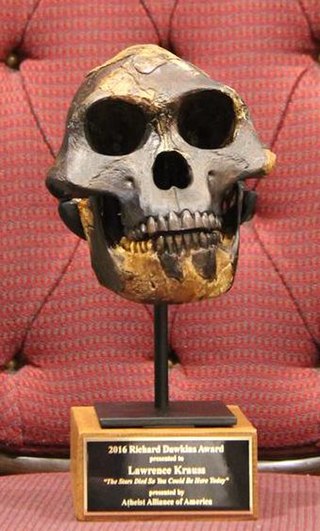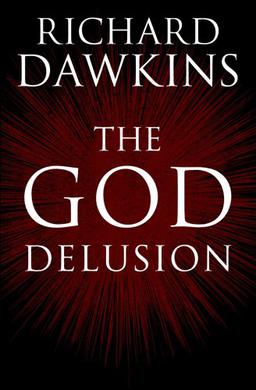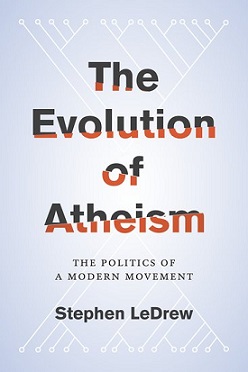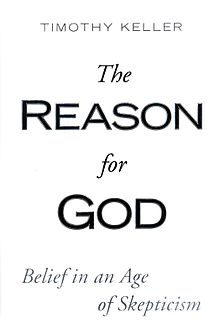
Richard Dawkins is a British evolutionary biologist and author. He is an emeritus fellow of New College, Oxford, and was Professor for Public Understanding of Science in the University of Oxford from 1995 to 2008. His 1976 book The Selfish Gene popularised the gene-centred view of evolution, as well as coining the term meme. Dawkins has won several academic and writing awards.
Skepticism, also spelled scepticism in British English, is a questioning attitude or doubt toward knowledge claims that are seen as mere belief or dogma. For example, if a person is skeptical about claims made by their government about an ongoing war then the person doubts that these claims are accurate. In such cases, skeptics normally recommend not disbelief but suspension of belief, i.e. maintaining a neutral attitude that neither affirms nor denies the claim. This attitude is often motivated by the impression that the available evidence is insufficient to support the claim. Formally, skepticism is a topic of interest in philosophy, particularly epistemology.

Scientific skepticism or rational skepticism, sometimes referred to as skeptical inquiry, is a position in which one questions the veracity of claims lacking empirical evidence. In practice, the term most commonly refers to the examination of claims and theories that appear to be beyond mainstream science, rather than the routine discussions and challenges among scientists. Scientific skepticism differs from philosophical skepticism, which questions humans' ability to claim any knowledge about the nature of the world and how they perceive it, and the similar but distinct methodological skepticism, which is a systematic process of being skeptical about the truth of one's beliefs.

The Brights movement is a social movement whose members since 2003 refer to themselves as Brights and have a worldview of philosophical naturalism.

Alister Edgar McGrath is a Northern Irish theologian, Anglican priest, intellectual historian, scientist, Christian apologist, and public intellectual. He currently holds the Andreas Idreos Professorship in Science and Religion in the Faculty of Theology and Religion, and is a fellow of Harris Manchester College at the University of Oxford, and is Professor of Divinity at Gresham College. He was previously Professor of Theology, Ministry, and Education at King's College London and Head of the Centre for Theology, Religion and Culture, Professor of Historical Theology at the University of Oxford, and was principal of Wycliffe Hall, Oxford, until 2005.

The Richard Dawkins Award is an annual prize awarded by the Center for Inquiry (CFI). It was established in 2003 and was initially awarded by the Atheist Alliance of America coordinating with Richard Dawkins and the Richard Dawkins Foundation for Reason and Science. In 2019, the award was formally moved to CFI. CFI is a US nonprofit organization that variously claims on its website to promote reason, science, freedom of inquiry, and humanist values, or science, reason, and secular values. The award was initially presented by the Atheist Alliance of America to honor an "outstanding atheist", who taught or advocated scientific knowledge and acceptance of nontheism, and raised public awareness. The award is currently presented by the Center for Inquiry to an individual associated with science, scholarship, education, or entertainment, and who "publicly proclaims the values of secularism and rationalism, upholding scientific truth wherever it may lead." They state that the recipient must be approved by Dawkins himself.

Samuel Benjamin Harris is an American philosopher, neuroscientist, author, and podcast host. His work touches on a range of topics, including rationality, religion, ethics, free will, neuroscience, meditation, psychedelics, philosophy of mind, politics, terrorism, and artificial intelligence. Harris came to prominence for his criticism of religion, and is known as one of the "Four Horsemen" of New Atheism, along with Richard Dawkins, Christopher Hitchens, and Daniel Dennett.

John F. Haught is an American theologian. He is a Distinguished Research Professor at Georgetown University. He specializes in Roman Catholic systematic theology, with a particular interest in issues pertaining to physical cosmology, evolutionary biology, geology, and Christianity.

Timothy James Keller was an American Calvinist pastor, preacher, theologian, and Christian apologist. He was the chairman and co-founder of Redeemer City to City, which trains pastors for service around the world. He was also the founding pastor of Redeemer Presbyterian Church in New York City and the author of The New York Times bestselling books The Prodigal God: Recovering the Heart of the Christian Faith (2008), Prayer: Experiencing Awe and Intimacy with God (2014), and The Reason for God: Belief in an Age of Skepticism (2008). The prequel for the latter is Making Sense of GOD: An Invitation to the Skeptical (2016).
Criticism of atheism is criticism of the concepts, validity, or impact of atheism, including associated political and social implications. Criticisms include positions based on the history of science, philosophical and logical criticisms, findings in both the natural and social sciences, theistic apologetic arguments, arguments pertaining to ethics and morality, the effects of atheism on the individual, or the assumptions that underpin atheism.

The God Delusion is a 2006 book by British evolutionary biologist and ethologist Richard Dawkins. In The God Delusion, Dawkins contends that a supernatural creator, God, almost certainly does not exist, and that belief in a personal god qualifies as a delusion, which he defines as a persistent false belief held in the face of strong contradictory evidence. He is sympathetic to Robert Pirsig's statement in Lila (1991) that "when one person suffers from a delusion it is called insanity. When many people suffer from a delusion it is called religion." In the book, Dawkins explores the relationship between religion and morality, providing examples that discuss the possibility of morality existing independently of religion and suggesting alternative explanations for the origins of both religion and morality.

The Portable Atheist: Essential Readings for the Nonbeliever (2007) is an anthology of atheist and agnostic thought edited by Christopher Hitchens.

Children often acquire religious views approximating those of their parents, although they may also be influenced by others they communicate with – such as peers and teachers. Matters relating the subject of children and religion may include rites of passage, education, and child psychology, as well as discussion of the moral issue of the religious education of children.

John Carson Lennox is a mathematician, bioethicist, and Christian apologist originally from Northern Ireland. He has written many books on religion, ethics, the relationship between science and God, and has had public debates with atheists including Richard Dawkins and Christopher Hitchens.
The term New Atheism describes the positions of some atheist academics, writers, scientists, and philosophers of the 20th and 21st centuries. New Atheism advocates the view that superstition, religion, and irrationalism should not simply be tolerated. Instead, they advocate the antitheist view that the various forms of theism should be criticised, countered, examined, and challenged by rational argument, especially when they exert strong influence on the broader society, such as in government, education, and politics. Major figures of New Atheism include Richard Dawkins, Sam Harris, Christopher Hitchens and Daniel Dennett, collectively referred to as the "four horsemen" of the movement, as well as Ayaan Hirsi Ali until her conversion to Christianity in 2023.

Frank Turek is an American apologist, author, public speaker, and radio host. He is best known as the founder and president of Christian apologetics ministry CrossExamined.org. Turek has co-authored two books with Christian philosopher Norman Geisler. In addition, Turek has authored two of his own books.
The secular movement refers to a social and political trend in the United States, beginning in the early years of the 20th century, with the founding of the American Association for the Advancement of Atheism in 1925 and the American Humanist Association in 1941, in which atheists, agnostics, secular humanists, freethinkers, and other nonreligious and nontheistic Americans have grown in both numbers and visibility. There has been a sharp increase in the number of Americans who identify as religiously unaffiliated, from under 10 percent in the 1990s to 20 percent in 2013. The trend is especially pronounced among young people, with about one in three Americans younger than 30 identifying as religiously unaffiliated, a figure that has nearly tripled since the 1990s.
This is a bibliography of literature treating the topic of criticism of Christianity, sorted by source publication and the author's last name.

The Evolution of Atheism: The Politics of a Modern Movement is a 2015 book by Stephen LeDrew, adapted from his PhD dissertation. Though an atheist, LeDrew criticises the movement of New Atheism, which arose in the 2000s with the "Four Horsemen" Richard Dawkins, Daniel Dennett, Sam Harris and Christopher Hitchens as prominent figures.














